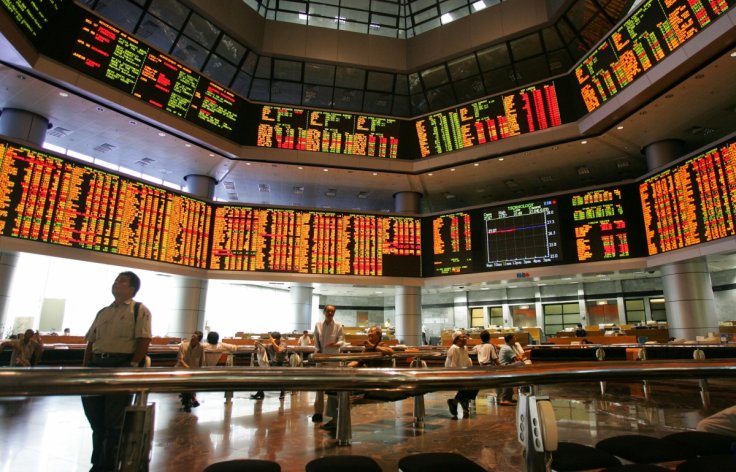
Asian stocks struggled for traction on Wednesday, as relief over Washington's temporary relaxation of curbs against China's Huawei Technologies failed to offset deeper worries about an intensifying trade war between the world's two largest economies.
In opening European trade, the pan-region Euro Stoxx 50 futures were down 0.03%, Germany's DAX futures were up 0.01% and Britain's FTSE futures were up 0.28%.
The Chinese markets, which have endured a volatile few months, were on a cautious note. The Shanghai Composite Index was last a fraction lower.
Australian stocks were flat and South Korea's KOSPI edged up 0.2%. Japan's Nikkei added 0.1%.
MSCI's broadest index of Asia-Pacific shares outside Japan moved in and out of the red and was last 0.1% higher.
"Some in the markets will continue to cling on to hopes of the United States and China reaching an agreement at the upcoming G20 meeting," said Masahiro Ichikawa, senior strategist at Sumitomo Mitsui DS Asset Management.
"But the ongoing trade conflict looks to be a protracted one, and its potentially negative impact on various economies is becoming a running concern."
Leaders from G20 nations are scheduled to gather for a summit in Japan at the end of June.
The U.S. Commerce Department on Monday granted Huawei Technologies Co Ltd a license to buy U.S. goods until Aug. 19, a move intended to give telecom operators that rely on Huawei time to make other arrangements.
But in yet another sign of a deepening divide between the world's two biggest economies, the New York Times reported on Tuesday that the United States could place limits on Chinese video surveillance firm Hikvision's ability to buy U.S. technology.
"Notwithstanding the latest tweet from President Trump that some restrictions on Huawei had been eased, global equity markets have continued to underestimate the relentless expansion of the U.S.-China trade dispute," wrote Sean Darby, chief global equity strategist at Jefferies.
"The progression from tariffs, to direct actions against single Chinese companies and their inter-linked supply chains, has a wide-ranging impact on profitability for corporates in both economies that investors will find difficult to quantify."
The dollar traded at 110.460 yen after popping up to a two-week high of 110.675 against the safe-haven Japanese currency overnight as U.S. yields rose in the wake of gains by Wall Street shares.
The euro was little changed at $1.1156 after brushing a 2-1/2-week trough of $1.1142.
The pound was steady at $1.2712. Sterling had sunk to a four-month low of $1.2685 on Tuesday on Brexit worries but bounced back after British Prime Minister Theresa May proposed a "new" Brexit deal.
The Australian dollar, sensitive to shifts in risk sentiment, inched down 0.1% to $0.6878. The currency had suffered losses the previous day when Australia's central bank governor said interest rates might be cut as soon as next month.
In commodities, U.S. West Texas Intermediate (WTI) crude futures were down 0.89% at $62.57 per barrel after American Petroleum Institute data showed that U.S. crude stockpiles rose unexpectedly last week.
Oil was also pressured by Saudi Arabia reiterating that it would aim to keep the market balanced and try to reduce tensions in the Middle East.
Brent crude futures lost 0.62% to $71.73 per barrel.








